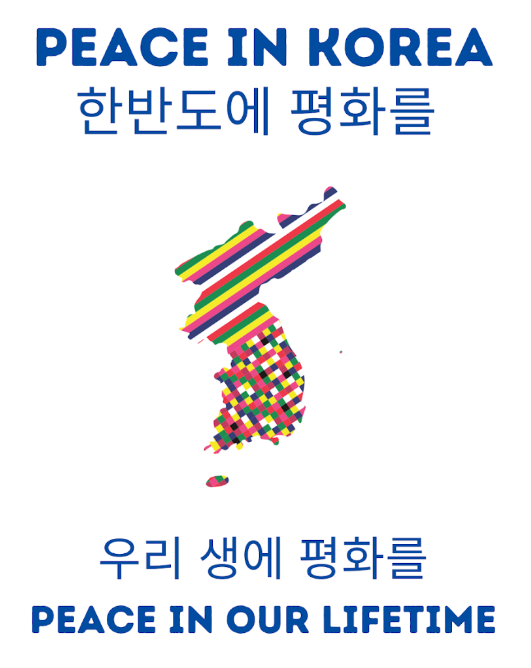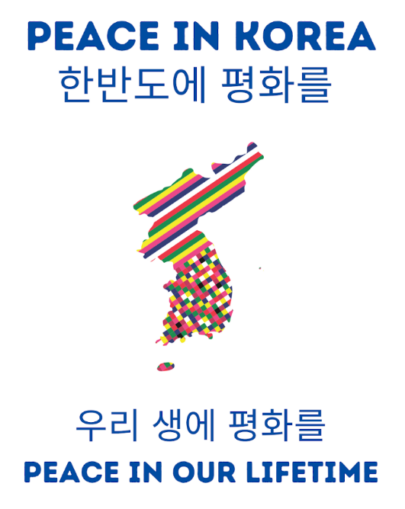

Credit: Korea Peace Action
July 27 marks 70 years since the Korean War armistice was signed. In just three years, an estimated 4 million people — more than half of them Korean civilians — had been killed by the time of the 1953 ceasefire agreement.


Credit: Korea Peace Action
And up to this year, seven decades later, the ceasefire is still a fragile one, made ever more dangerous since the U.S. first introduced nuclear weapons in South Korea in 1958, unilaterally abrogating paragraph 13d of the Armistice Agreement and breaking it despite concerns by its allies in the United Nations.
Joseph Han, acclaimed author of the novel “Nuclear Family,” explained why he’s traveling all the way from Hawai’i to Washington, D.C., to join a protest march on July 27: “This past year, the U.S. announced plans to deploy a nuclear submarine to South Korea, bringing us closer to war as profit intended; U.S. Forces Korea attempted to renovate a firing range in Changwon, South Gyeongsang Province, igniting concern for public safety by local residents; U.S. troops have tested their THAAD missile defense system during their ‘Warrior Shield’ live-fire training exercise in Pocheon; and residents of Seoul were told to evacuate after receiving a false alert, resulting in widespread panic and fear, feelings those of us in Hawai’i remember as we received our own false alert in 2018.
“Though we wish to live without worry, as war continues to ramp up, we are being conscripted to the side of fear, insecurity, and death. Militarization never keeps us safe.”
The Korean War is the longest-standing overseas U.S. conflict, except perhaps for U.S. involvement in the violent Zionist occupation of Palestine since 1948. The still-unresolved status of the war in Korea could result in a major military confrontation at any moment as the geopolitical situation in the Korean peninsula and northeast Asia rapidly deteriorates. Korea is on the frontline of the U.S.’s new Cold War against China — and the steady drumbeat for war shows no signs of letting up.
U.S. officials of both capitalist parties are barreling toward a new hot war in the region that could easily spiral into a catastrophic nuclear conflict. Building strong opposition to U.S. war maneuvers in Korea and throughout the Asia-Pacific region is more important than ever before.
Officially ending the Korean War would be a first step toward lowering tensions and shifting resources away from eternal wars and toward more basic human needs, such as healthcare, education, housing and the environment.
The 70 years of sanctions, isolation and military threats have only denied North Korea’s population the necessities of life, prevented the reunification of Korea and prolonged the state of war in Korea. It’s time to end the Korean War and reunite Korean families, demilitarize the Korean Peninsula and reduce the risk of nuclear war in northeast Asia.
Protests planned in Washington and Korea on armistice anniversary
To mark the 70th anniversary of the Korean Armistice, advocates from around the U.S. will converge on Washington, D.C., to call on President Joe Biden and Congress to officially end the Korean War and replace the armistice with a peace agreement.
A major goal of the activities is catalyzing Congressional and public support for the Peace on the Korean Peninsula Act (H.R.1369) which is now backed by 33 members of Congress. The proposed legislation lays the groundwork for establishing a peace agreement and finally ending the Korean War.
This three-day-long national gathering is being organized by Korea Peace Action; National Mobilization to End the Korean War, led by Women Cross DMZ the Korea Peace Now! Grassroots Network; and a broad coalition of peace activists, humanitarian aid groups, organizations representing veterans, POW-MIAs, faith traditions and Korean Americans whose families remain divided by the demilitarized zone that bisects the peninsula. This action will coincide with similar peace mobilizations in South Korea, organized by Korean peace partners there.
July 27 activities will include an 11:30 a.m. press conference at the House Triangle (on the U.S. Capitol’s East Front), with Korea Peace champions and Congressional leaders, a 1:00 p.m. community grief ceremony and a 5:00 p.m. rally at Lafayette Square in front of the White House calling for peace in Korea. After the rally, participants will march to the Lincoln Memorial where a vigil honoring all the families who have been harmed by 70 years of war and near-war will end the day’s program.
On July 28, strategists and activists organizing for peace in Korea will gather for a day-long conference with three major points on their agenda: The Human Costs of Unending War; The Threat of Nuclear War; and Prospects and Challenges for a Peace Agreement.
While in the U.S. Air Force, Joe Piette was deployed in 1967-8 to Osan Air Base, 64 miles south of Seoul, South Korea, part of a unit that dropped propaganda leaflets from high altitude over North Korea when the wind cooperated.
As we observe the ongoing negotiations between the United States and Iran, we, the undersigned,…
Hamas issued the following statement on April 24, 2025, published on Resistance News Network. The…
By D. Musa Springer This statement is from Hood Communist editor and organizer D. Musa…
Portland, Oregon On April 12 — following protests in Seattle and elsewhere in support of…
This statement was recently issued by over 30 groups. On Friday, March 28, Dr. Helyeh…
When Donald Trump announced massive tariffs on foreign imports April 2, Wall Street investors saw…